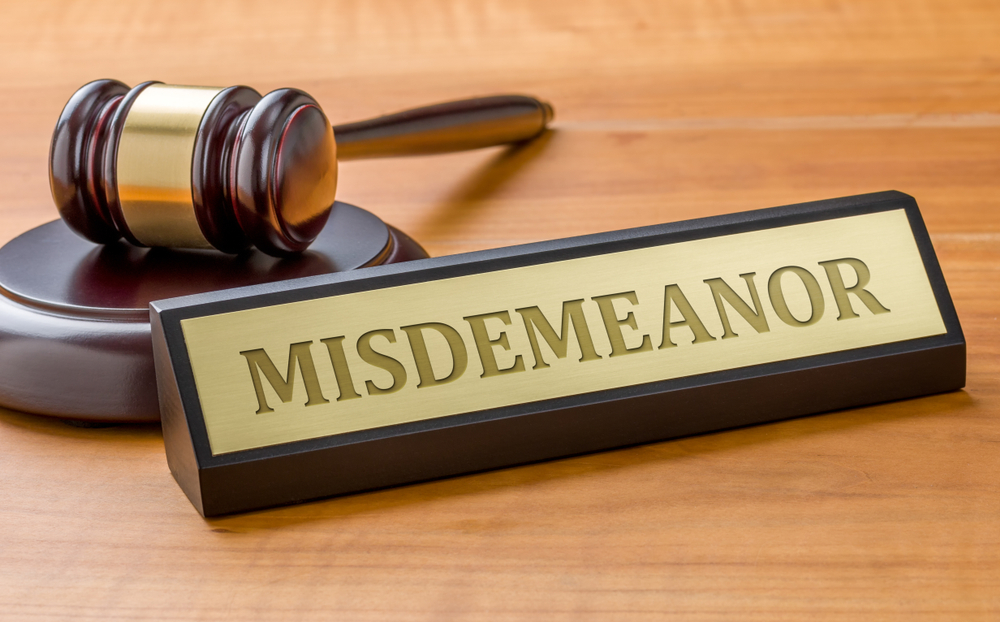Misdemeanors
Misdemeanors are less serious offenses than felonies, and they are typically punishable by a fine and/or a term of imprisonment of up to one year. Some common examples of misdemeanors in Florida include:
- Disorderly conduct (Fla. Stat. § 877.03)
- Simple assault (Fla. Stat. § 784.011)
- Petit theft (Fla. Stat. § 812.014)
- DUI (Fla. Stat. § 316.193)
In Florida, misdemeanors are classified as either first-degree or second-degree misdemeanors. First-degree misdemeanors are more serious than second-degree misdemeanors and carry a maximum penalty of one year in jail and/or a $1,000 fine. Second-degree misdemeanors carry a maximum penalty of 60 days in jail and/or a $500 fine.
Felonies
Felonies are more serious offenses than misdemeanors and are punishable by a term of imprisonment of more than one year. Some common examples of felonies in Florida include:
- Grand theft (Fla. Stat. § 812.014)
- Burglary (Fla. Stat. § 810.02)
- Drug trafficking (Fla. Stat. § 893.135)
- Murder (Fla. Stat. § 782.04)
In Florida, felonies are classified as either capital, life, first-degree, second-degree, or third-degree felonies. Capital felonies are the most serious and are punishable by the death penalty or life imprisonment without the possibility of parole. Life felonies are punishable by life imprisonment with a mandatory minimum term of 25 years. First-degree felonies are punishable by up to 30 years in prison and/or a $10,000 fine. Second-degree felonies are punishable by up to 15 years in prison and/or a $10,000 fine. Third-degree felonies are punishable by up to five years in prison and/or a $5,000 fine.
Florida Statute 775.082 provides the sentencing guidelines for felonies in Florida, including the maximum and minimum penalties for each category of felony. It’s important to consult with a criminal law attorney who is familiar with Florida law if you have been charged with a misdemeanor or felony in Miami.
In conclusion, understanding the difference between a misdemeanor and a felony is important if you have been charged with a crime in Florida. Misdemeanors are less serious offenses than felonies and carry a maximum penalty of one year in jail, while felonies are more serious offenses and carry a term of imprisonment of more than one year. A criminal law attorney can help you understand the charges you are facing and build a strong defense against the charges.
 Roy J. Kahn, with years of legal experience in a wide variety of criminal law, heads a “boutique” firm, which means that your attorney is Roy J. Kahn, not a paralegal. If you have been charged or are about to be charged with a crime—or if you have been contacted to be a witness in a federal grand jury case, you need a qualified defense. You should consult with an attorney immediately and know that you have a right to make no statement until you have consulted with an attorney To contact Mr. Kahn, he can be reached at 305-358-7400.
Roy J. Kahn, with years of legal experience in a wide variety of criminal law, heads a “boutique” firm, which means that your attorney is Roy J. Kahn, not a paralegal. If you have been charged or are about to be charged with a crime—or if you have been contacted to be a witness in a federal grand jury case, you need a qualified defense. You should consult with an attorney immediately and know that you have a right to make no statement until you have consulted with an attorney To contact Mr. Kahn, he can be reached at 305-358-7400.

Recent Comments